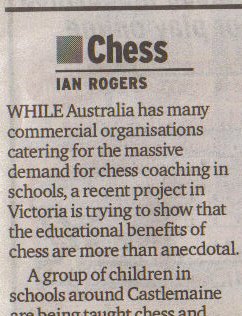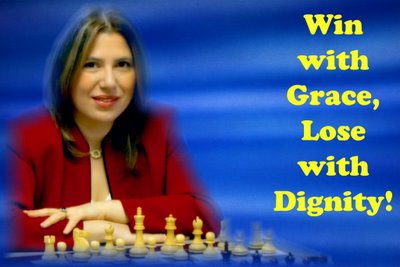
The article goes on to say:
A group of children in schools around Castlemaine are being taught chess and encouraged to provide brief comments on their thought process which produce moves.
Not only are chess-playing children being compared to their non-playing peers in areas such as numeracy, but the effect on patience and self-control within the chess-playing group might also be measured.
One observation a researcher has made in the early stages of the project is that many children are keen to play chess but regard instruction as redundant- an attitude natural for todays video game users who aquire skill solely by playing.
This attitude can only be overcome once the connection between chess success and useful advice is established- a link which will hopefully be carried over to other school subjects.
The Australian Council for Educational Research this month published an article on the project, the ambitions of which appear unlimited given the piece's sub-title 'Chess Generates Genius'.
Regardless of hyperbole, the project is certainly worthwhile since if chess is shown to be an activity which kids are happy to try and which even indirectly improves numeracy, it could become a useful tool in schools' arsenals.

